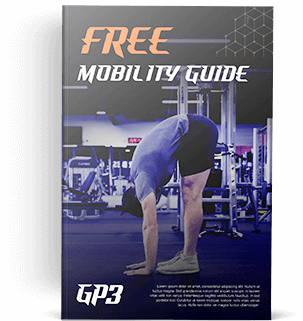Listen to this article on Spotify!
Key Points:
-
Many people feel intense stress around buying gifts during the holidays.
-
A few years ago, I stopped buying gifts for my loved ones at Christmas and told them to do the same for me.
-
This turns into a special gift for all of us, freedom from the pressure of obligation.
Estimated reading time: 4-8 minutes
Earlier this week, I heard a fellow trainer at my gym say to another, “Have you finished your Christmas shopping yet?” The second person laughed and replied, “I haven’t even started yet.” At that moment I thought to myself, “Oh yeah. That’s a thing people do at this time of year. And wait, I used to do that, too. I sure don’t miss it!” One of the odd parts about living in Arizona after nearly three decades in the Midwest is that the incredible December weather means it never feels like Christmas is right around the corner. My brain just can’t really compute that without snow and bitter cold. But it’s not just the warm climate.
I also don’t buy Christmas gifts anymore.
Early on in our relationship, Tess and I agreed upon a wonderfully liberating gift. For birthdays, anniversaries, and holidays, we decided to give each other…nothing! I can’t remember if one of us initiated this non-practice, or if we settled upon it organically, but the aim was clear. Release each other from the pressure of the obligation and expectation of gift-giving. Instead, we operate from a principle that goes something like this. If you see something the other person would genuinely like, find useful, or needs, feel free to get it for them at any time of year. There’s no need to wait for a specific societally-imposed date to purchase a present. But that’s not the main benefit.
The true gift is the selfless act of reducing your partner’s stress levels, of putting no pressure on them to make you feel special through the purchase of a material thing. By forgoing a gift, you are giving an even greater one to someone you love. You’re making their life easier and more carefree. Plus, the same benefits apply to you. Win-win!
And let’s get real here for a minute.
While some people love buying gifts and the health benefits of generosity are well-documented, the pressure of obligation to give can ruin the magic. When giving is expected or subtly enforced through societal pressure, it feels less pure, less special. This struck me particularly hard when watching A Charlie Brown Christmas earlier this month. Good old Chuck repeatedly lamented the overcommercialization of the holiday, eventually crying out in despair, “Isn’t there anyone who knows what Christmas is all about?!” When the credits rolled after the heartwarming ending, I couldn’t help but feel a bit shocked when some light Googling told me that this special had been published in 1965. If Peanuts creator Charles Schulz felt discomfort with the materialistic nature of Christmas nearly 60 years ago, I shudder to imagine what he’d think today. And it’s not just him.
A recent survey found that 46% of Americans find shopping for gifts to be the most stressful part of the holiday season. I can relate. Years ago, I remember frantically trying to decide each December who “made the cut” of being a close enough friend to receive a gift come Christmastime. And heaven forbid someone would get me a gift if I’d bought nothing for them. How humiliating!
This typically culminated in last minute shopping (sometimes on Christmas Eve) for random, silly things that nobody would have bought themselves under usual circumstances. As an aside, I’ve noticed something interesting about gift-giving. If someone either doesn’t know you particularly well or has no idea what to get you, they’ll buy you something that they, themselves would have wanted. Be on the lookout for this during your next big gift exchange. It’s actually kind of funny. Also, see if you can catch yourself falling into this trap! Looking back, I certainly have.
But eventually I said, “Enough of all that.”
For the past few years, I’ve been clear with everyone I love, “Don’t get me a gift! And also, don’t expect anything in return.” I’ll tell them, if you really feel the need to do something, write me a letter or draw me a picture. Or don’t. I don’t need anything from you to know how much you value our relationship, and I hope you feel the same way about me. This is true for my wife, my friends, my family, and anyone with whom I’d choose to spend time. And honestly, it’s been great. The end of the year is hectic enough that it’s such a relief not to have one additional thing to worry about.
But of course, there are some exceptions…
Lest I come across as a grinch, let me be clear that I’m not against gift-giving, particularly if it’s something you find joyful and exciting. If so, great! I’m by no means telling you to stop. I’ve heard about some wonderfully creative ways that families and friend groups handle birthdays and holidays to make them more fun and less stressful. As another example, if you don’t particularly enjoy the gifting process but giving and receiving gifts is how a person you’re close to prefers to express and receive love, it’s absolutely worth honoring that for the benefit of your relationship.
Consider a concept that’s gained a great deal of traction in the past decade and a half. Known as the five “love languages,” author Gary Chapman devised a system based on observations made in his counseling practice. “Receiving gifts” is one such language. For the curious, the others are, “words of affirmation,” “physical touch,” “acts of service,” and “quality time.” But, it’s common to misunderstand the “love languages” concept is by expecting others to understand our primary language and act accordingly…but without reciprocating this effort. To illustrate, here’s a (slightly modified) example from the love languages Wikipedia page:
If a husband’s love language is acts of service, he may be confused when he does the laundry and his wife does not perceive that as an act of love. She may view it as simply performing household duties, because the love language she finds most meaningful is words of affirmation. Conversely, she may try to use what she values, words of affirmation, to express her love to him, which he would not value as much as she does. But, if she understands his love language and mows the lawn for him, he perceives it as an expression of love. Likewise, if he provides affirmation by writing a note telling her how much he loves her, she would value that as an act of love.
It’s not always this simple, and most people express love in multiple ways, but here’s the point. When you care about someone enough to express love using their preferred love language, that’s special. So if you’ve got a family member, friend, or partner who truly values giving gifts as an expression of love, it’s worth embracing that. Just remember to set some boundaries around the lavishness of the gift exchange.
So, is a no-gift holiday season for you?
Here’s a simple test. Do you put off your Christmas/any other holiday/birthday/anniversary shopping to the last minute? Do you find deciding what to buy for people and whom to shop for to be a source of angst? Would you feel much better if you didn’t have to do any of that? If you answered yes to any or all of these, explore a no-gifts policy with your loved ones. Some of them will be relieved you had the courage to suggest this radical idea, while others may push back. As I’ve written before, capitalism is America’s favorite sport…and Christmas is the Super Bowl. But nobody’s forcing you to play in this year’s “big game.” And remember, by selflessly forgoing the chance to receive gifts from others, you’ll be giving them a wonderful one.
Before you go, I’d love to hear from you. How do you handle gifts with your loved ones? Do you ever feel the stress of holiday gift-giving? Reply to this email and let me know!

